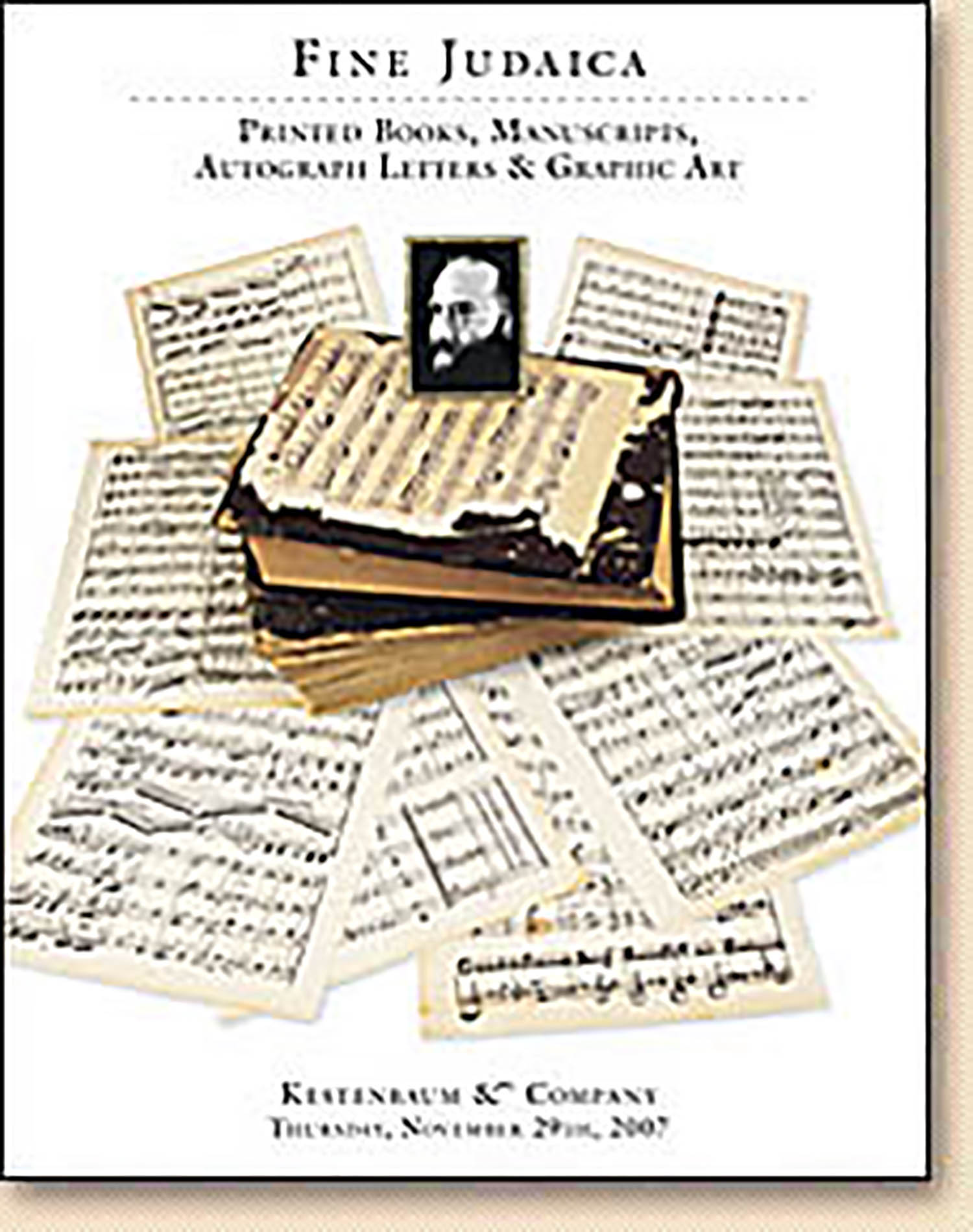(AMERICAN JUDAICA)

AUCTION 38 |
Thursday, November 29th,
2007 at 1:00
Fine Judaica: Printed Books, Manuscripts, Autograph Letters & Graphic Art
Lot 265
(AMERICAN JUDAICA)
Est: $500 - $700
PRICE REALIZED $900
Harriet Maria Isaacs (1787-c. 1825) was the daughter of Isaac Isaacs (1764-1809) of Newburgh, NY, and granddaughter of Aaron Isaacs (1724-1798), a native of Hamburg, Germany, upon whose tombstone in Easthampton, Long Island are inscribed the words, ”An Israelite in whom there is no guile.” The letter is datelined “N[ew] York, Sep. 16, Sunday morning.” As it bears a watermark “Joseph Coles, 1800,” we may presume that it was written in either 1804 or 1810 (in both those years September 16 fell on Sunday). The signature is an enigmatic “L.” The writer sends love to “Aunt Esther.” This would have been Isaac’s sister Esther (1762-1848). Likewise, “Kiss dear little Willey boy for me.” This would be Harriet Maria’s younger brother William (b. 1809). Assuming the latter identification to be correct, the year of the letter’s composition is narrowed to 1810. See Malcolm Stern, Americans of Jewish Descent (1960), p. 92.
2). Eli Hart of 179 Pearl Street, New York, was a wine merchant. In this letter from Joseph Webster of Montreal, Mr. Hart is asked to pay lawyer’s fees in a civil suit. Another letter addressed to Eli Hart has been uncovered in the Burton Historical Collection of the Detroit Public Library.
3). Mordecai Lewis is presumed to belong to the Early American Jewish Family by that name. The fact that he was in the employ of Barnett & Co. strengthens this conviction. Barnett was a prominent Philadelphian businessmen, a member of Mikveh Israel Congregation. In the records of Mikveh Israel for the year 1792, there is listed “N[athan] Barnett from Holland.” This may account for the Rotterdam Bill of Exchange. Nathan Barnett died July, 1797, Philadelphia. See J.R. Rosenbloom, A Biographical Dictionary of Early American Jews, p. 10
